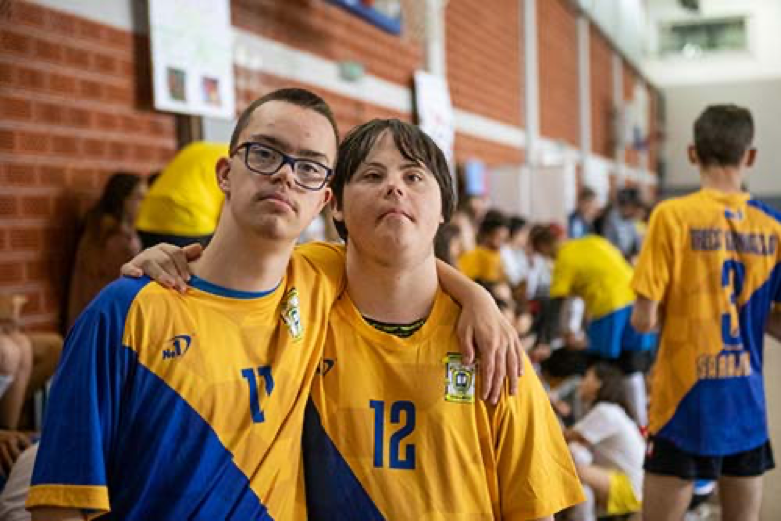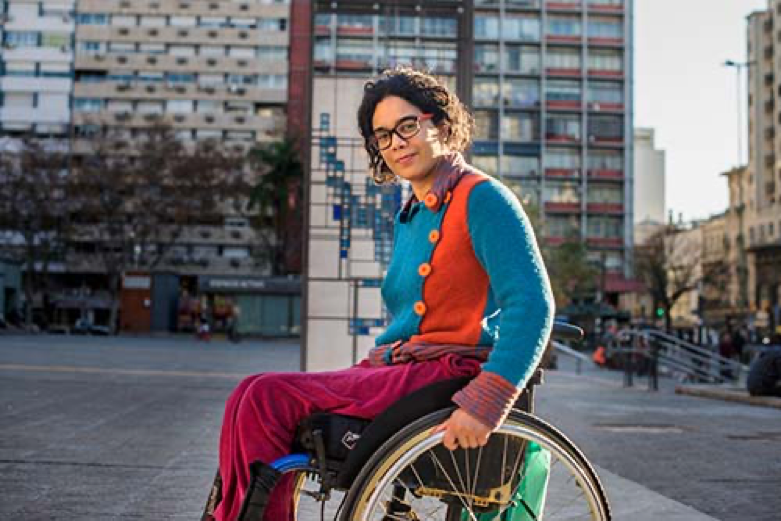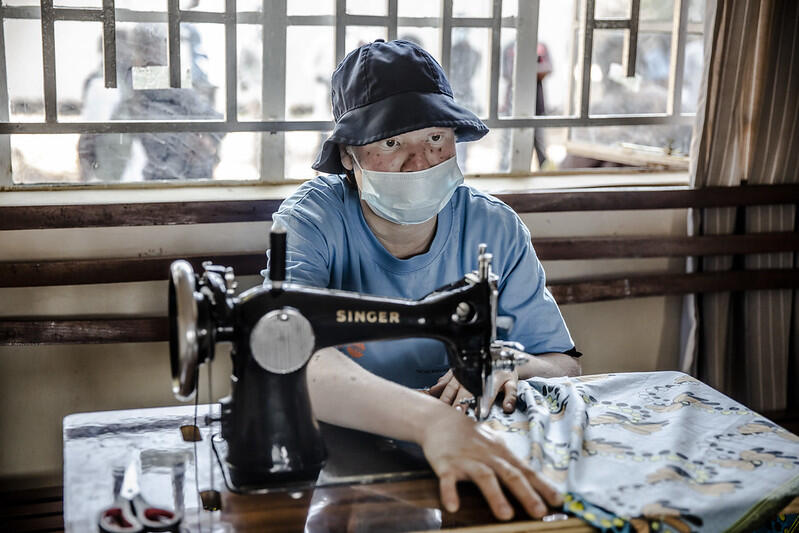UNITED NATIONS, New York – As the COVID-19 pandemic overwhelms health systems, shutters businesses and triggers a spike in gender-based violence, persons with disabilities face particularly acute challenges. This is one of the key insights from a series of consultations that UNFPA and Women Enabled International (WEI) held in September and October, with support from the UN Partnership on the Rights of Persons with Disabilities.
Even before the pandemic, persons with disabilities faced extremely high barriers to sexual and reproductive health information and services. Now, with many services interrupted because of lockdown measures, these services are even less accessible.
“There are services which have not been provided… They say during the COVID-19 [pandemic], they cannot provide those services. Maybe after,” explained Ruth Kamchacha, in Malawi, during the recent consultation.
As a person with a visual impairment and the director of a disability advocacy group, she knows these challenges all too well.
COVID-19 affected women with disabilities economically. It put a strain on them… Most of them are raising their children by themselves.
Health services increasingly out of reach
Women with disabilities are among the most vulnerable, said participants in the consultations, which reached 200 persons with disabilities in 19 countries around the world.

“COVID-19 affected women with disabilities economically. It put a strain on them… Most of them are raising their children by themselves,” explained Ms. Kamchahca.
Financial pressures, combined with the rising cost of transportation to health facilities, means many women are choosing to forgo care.
“You find that the minibus that cost 250 kwacha now is 1,000… Some women would think, ‘For me to get those services, I have to pay [for] this with the same money I can use to buy food.’”
Even under normal circumstances, health services do little to accommodate persons with disabilities, Ms. Kamchacha said.
“You'll find that there is not any sign language interpretation there” at most health facilities in Malawi. While there are often posters to provide information to people with hearing impairments, “there is nothing that would really help someone who cannot read on their own.”
One of the major issues in my country is a lack of sign language interpretation when it comes to health – and specifically sexual and reproductive health.
The same is true in other countries as well.
“One of the major issues in my country is a lack of sign language interpretation when it comes to health – and specifically sexual and reproductive health,” said Niluka Gunawardena, who has a physical and psychosocial disability. She is a university lecturer and works with the organization HYPE in Sri Lanka.
“It creates spaces within health care, within sexual health, that are very exclusive and inaccessible,” she said.
Dangerous stigmas
Consultation participants reported seeing and experiencing major stigmas around persons with disabilities engaging in sexual activity. These taboos severely limit their access to sexual health information and services, and impede their autonomy over their bodies and choices.
Women with disabilities cannot access contraception, emergency contraception, abortion – even if they meet one of the three [legally] accepted reasons – or dignified labour.
“Women with disabilities cannot access contraception, emergency contraception, abortion – even if they meet one of the three [legally] accepted reasons – or dignified labour,” said Marcela Benavides, who has a psychosocial disability. She is the president of CIMUNDIS, a disability rights organization in Chile.

Persons with disabilities should not have to endure stigma around their sexual and reproductive choices. © UNFPA
“There is a general assumption of asexuality with most cases of disability,” Ms. Gunawardena said, “and then hypersexuality when it comes to psychosocial disabilities or learning disabilities, which means that the sexuality of persons with disabilities is not really thought through when it comes to the public health agenda.”
The consequences can be devastating.
Ms. Kamchacha’s organization, Disabled Women in Africa, reported one case where a woman with a disability arrived at a Malawian health centre to give birth. “The personnel were just like, you know, casting appalling insults on her. ‘As a woman with a disability, why did you put yourself in this state? Why did you get pregnant?’”
The woman was neglected during delivery. “The patient – or the victim – ended up losing the baby,” Ms. Kamchacha explained, “and the husband ended the marriage.”
In many places, persons with disabilities rely on advocacy groups and community support networks to fill the gaps. Such groups can provide accessible sexual and reproductive health information, facilitate health services, and offer other assistance. But with COVID-19, many of these mechanisms have been disrupted.
“Another major obstacle, especially in the context of COVID-19, has been the breakdown of community support networks,” Ms. Gunawardena said. “Because of the social distancing and isolation, the community support networks have kind of come apart.”
Because of the social distancing and isolation, the community support networks have kind of come apart.
Advocates undeterred
Despite these challenges, advocates are working hard to ensure the human rights of persons with disabilities are respected, including their reproductive rights.
In Sri Lanka, Ms. Gunawardena and colleagues host digital forums with community leaders “looking at sexual and reproductive health and rights, gender-based violence and the experiences of disabled women.”
In Chile, Ms. Benavides’s organization is working to “give a strong feminist perspective” to leaders working on disability rights.
In Malawi, Ms. Kamchacha’s group is working with WEI and UNFPA to make sexual and reproductive health information available and accessible to persons with disabilities during the pandemic.
And insights from WEI and UNFPA’s consultations are being used to develop guidance and good practices, which will be published early next year.



